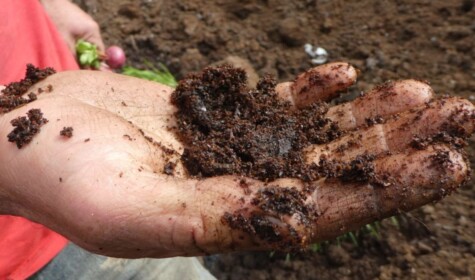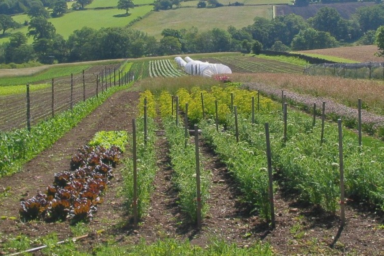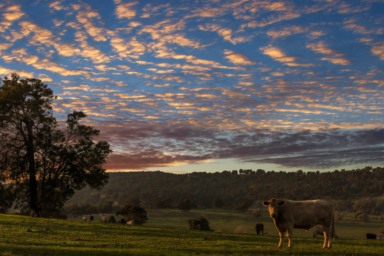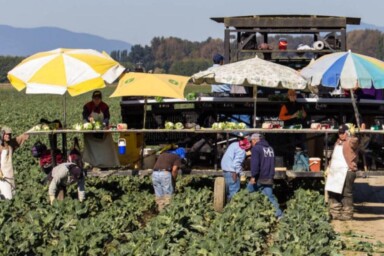There’s been a lot of talk post-Brexit about where farm labour is going to come from. We all know the story – the average age of farmers is around 60 and while there are young people interested in farming and growing, especially on the organic and regenerative end of it, it’s not something that’s seen as either lucrative or easy. And the rush of interest in farming and growing that brought in many young first-generation farmers in the last decade is waning, I fear. The seminal 2014 New York Times piece, Don’t let your children grow-up to be farmers argued for the futility of the endeavour in the face of well-heeled ‘non-profit’ farms sucking up grants, ‘hobby farmers’ taking space in local farmers’ markets and the brutality of carrying heavy student loans while breaking your back in the field. While this is an American context, it is still not so very far from the reality in Britain – that economic playing field is still very uneven.
However, cultivating a generation of farmers and growers that are approaching the land with care and consideration, wanting to preserve soil health and natural habitats, working in harmony with nature, knowing the land they farm intimately, is so important. These are the people who could turn around the problems that plague our food and farming systems – environmental degradation, biodiversity loss and the public health crisis of industrialised food. They have a big job to do, and we need many more of them to do it.
But there’s a very real and looming problem here, which is the degraded nature of farm work. Sustain’s 2018 report Why would anyone want to pick our crops? provides a depressing picture of a farm worker’s life – one respondent in the research described it as a future of ‘ever lower wages, reduced employment rights, failing health and safety standards, increased job and housing insecurity’. Align this with the back-breaking physical work that farming and growing demands, and you would have to be pretty nuts to take it on.
The closure of the Agricultural Workers Board in 2013 which supported both farm employers and employees, had significant impact and helped to further diminish the value of farm work. Particularly for farm workers, the protections it offered and the wages it set helped level that economic playing field for them, and with its closure, farm work has become more precarious and casual.
Alongside this, anyone coming into farming, wanting to set-up for themselves, must have access to land – and this is very hard to come by if you don’t have money. And even if you have money, you are likely to operate with significant debt for a long time, unless you have a lot of money. Farmland prices have increased some 17,400% since the 1930s – a phenomenal change – and its value has meant that it’s not just farmers buying up land, it’s also investors looking to profit from the rising prices. But while this remains a difficult and arguably intractable issue, we need to think outside the box, and recognise that there are solutions to be found.
What we must face, is how to turn this around? How do we create opportunities and experiences that will inspire young people to take on a life on the land? How do we make farming and growing a meaningful, valued and essential part of a society that young people will want to be a part of?
For my husband and I, it’s about building community, it’s about having purpose, it’s about making real change and feeling that what we do is not just important, it’s essential in turning around our global woes. That commitment to ecological practice in our food production is about living symbiotically in a world that we share with everything else that lives on the earth. Our food and farming systems sit at the nexus of climate and biodiversity issues, so we can’t look away from the problems that humans have created. Instead, we need to embrace these issues and do what we can, in both great and small ways, to live better on the earth.
Making farm work meaningful is really critical – believing in what you do changes the nature of work and is often the difference between feeling happy about what you do and wanting to leave it behind forever. Farming and growing asks a lot of those who work in it, and its pressures can be enormous. It takes people who are remarkable in their commitment to the land and animals, their work ethic, their bravery and strength in the face of hardship that most people would turn their backs on. This is work that should never be devalued; this is work that demands the utmost respect.
We need a movement, a movement with meaning, that tells the next generation that being a farmer, that being grower, can be great and immensely fulfilling even as it is hard as rocks, but also that the meaning it offers is embedded in the land, in nature and the very heart of the earth and we are there to care for it. That’s a precious responsibility.






